A 2008 study showed that a ketogenic diet helped people with type 2 diabetes and obesity. They saw better blood sugar control and used less medicine than those on a low-carb diet1. This shows the diet’s power in managing diabetes. I wanted to see how it could help me control my blood sugar and improve my health.
The ketogenic diet is getting more popular for its benefits. It helps with blood sugar levels, makes insulin work better, and aids in weight loss for people with type 2 diabetes12. It changes the body’s energy source from carbs to fat. This could mean less need for diabetes medication12. I was interested in this diet because it seemed like a natural way to manage my diabetes.
Key Takeaways
- The ketogenic diet has been shown to effectively lower blood sugar levels in individuals with Type 2 diabetes2.
- Keto can lead to rapid weight loss due to the body burning fats for energy rather than carbohydrates2.
- Ketogenic diet may reduce the dependency on diabetes medication and insulin with proper medical supervision2.
- Monitoring blood glucose and ketone levels is essential when following the ketogenic diet to ensure safety1.
- The ketogenic diet’s sustainability and long-term effectiveness for diabetes management are still being researched2.
Understanding the Ketogenic Diet and Its Effects on Diabetes
The ketogenic diet is a diet high in fat and low in carbs. It makes the body enter a state called “ketosis.”3 In this state, the body uses fat for energy instead of carbs. This leads to the production of ketone bodies, which can be used as fuel3. By eating very few carbs, the diet helps the body burn fat, which can help control blood sugar, make insulin work better, and lead to weight loss in people with diabetes3.
What is the Ketogenic Diet?
This diet focuses on foods high in fat like meat, eggs, dairy, nuts, seeds, and veggies with low carbs4. It limits or cuts out grains, legumes, fruits, and other foods high in carbs4. The goal is to make the body use fat for energy instead of carbs, producing ketone bodies as an alternative fuel3. The diet is made up of 70% fat, 20% protein, and only 10% carbs3.
Studies show the ketogenic diet can help people with diabetes a lot3. One study found people on this diet lost 2 pounds more than those on a low-fat diet3. Another study with older adults showed those on the ketogenic diet lost much more body fat than those on a low-fat diet3.
“Following a ketogenic diet for 90 days significantly reduced levels of hemoglobin A1C in women with type 2 diabetes.”3
People with type 2 diabetes who ate this way for 2 years lost an average of 26.2 pounds and had better blood sugar control3. The diet also made insulin work 75% better in a study3.
| Metric | Ketogenic Diet | Low-Fat Diet |
|---|---|---|
| Weight Loss | 2 lbs (0.9 kg) more on average3 | Less weight loss compared to ketogenic diet3 |
| Total Body Fat | Nearly 5 times more fat loss3 | Less fat loss compared to ketogenic diet3 |
| Hemoglobin A1C Reduction | Significant reduction in 90 days3 | Not specified |
| Weight Loss (2 years) | 26.2 lbs (11.9 kg) average loss3 | Not specified |
| Insulin Sensitivity | 75% improvement3 | Not specified |
The ketogenic diet looks promising for diabetes, but we need more long-term studies4. People thinking about this diet should talk to their diabetes team first534.
Understanding Diabetes
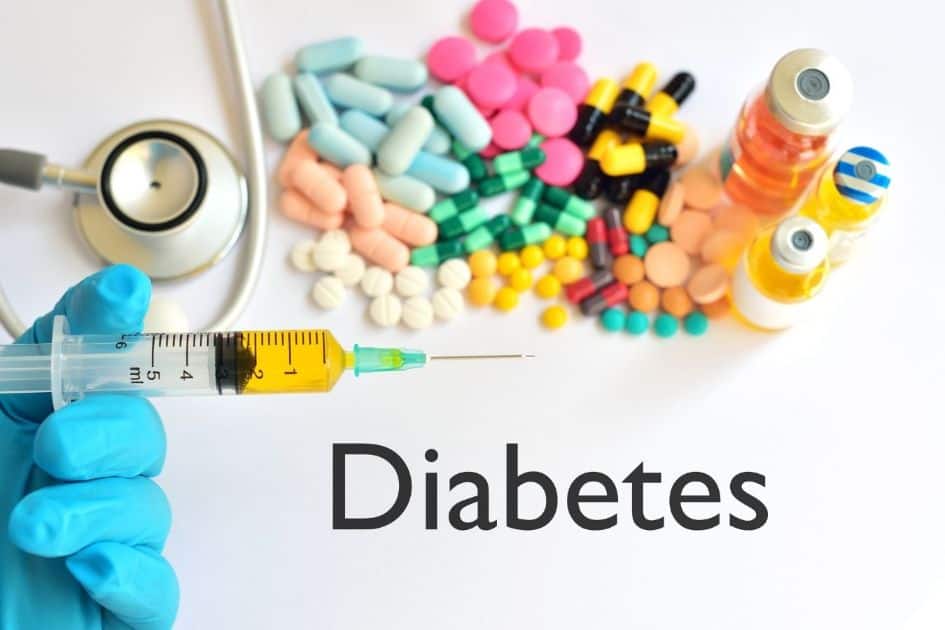
To comprehend the ketogenic diet’s impact on diabetes management, it is crucial first to understand what diabetes is. Diabetes is a condition that affects how your body processes sugar. There are two types of diabetes: Type 1 when the body doesn’t produce enough insulin, and Type 2 when the body doesn’t use insulin effectively. Gestational diabetes can also occur during pregnancy.
Diabetes disrupts the body’s ability to regulate blood sugar levels effectively, leading to complications if uncontrolled.
The Impact of Keto on Blood Glucose and Weight Loss
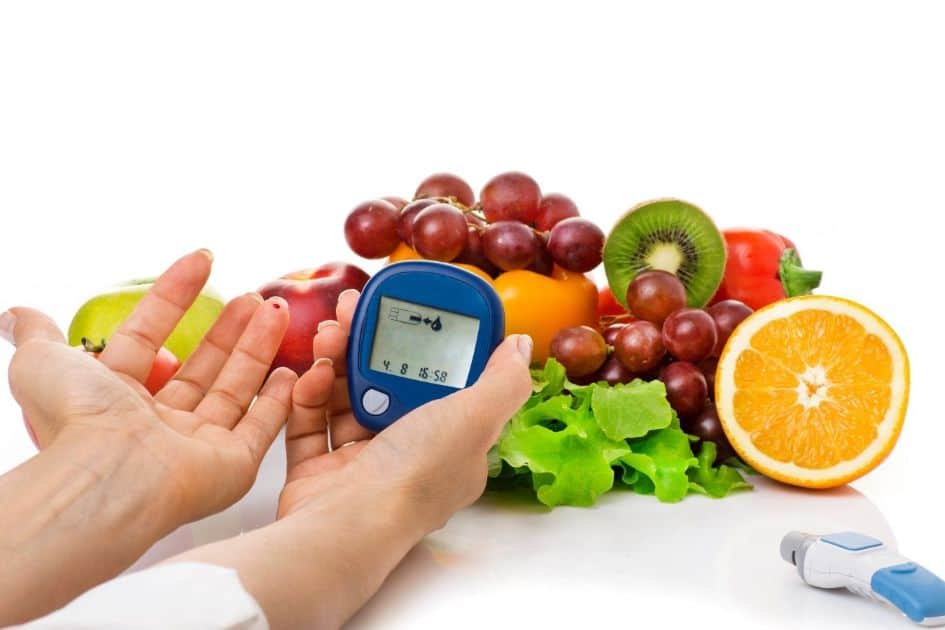
The ketogenic diet is a promising approach to managing blood glucose and promoting weight loss for people with diabetes. It cuts down on carbs, making up only 10% or less of daily calories. This can lower blood sugar and make insulin work better6.
Research shows the keto diet works as well as or better than other low-carb diets. In a study with 363 people, including 102 with type 2 diabetes, the keto diet beat a standard low-calorie diet. It improved blood sugar, weight, and cholesterol levels6.
On the keto diet, eating fewer carbs can mean needing less insulin. This can help manage diabetes better6. But, how it affects weight loss and blood sugar can differ for everyone. It’s key to watch blood sugar, ketone levels, and watch out for side effects6.
The keto diet can help with weight loss and controlling blood sugar. But, it has risks and challenges too. You might need to take extra fiber and vitamins like thiamin, B6, C, D, and E to avoid nutritional problems6. It could also cause low blood sugar, especially for those with type 1 diabetes, since it lowers insulin needs6.
If you’re thinking about the keto diet for diabetes or weight loss, talk to your doctor first. Make sure it’s right for you. Eat a balanced diet with lots of veggies, lean meats, fish, nuts, seeds, and healthy fats. Avoid foods like bread, pasta, alcohol, sugary drinks, and starchy veggies like potatoes6.
With a well-planned ketogenic diet, people with diabetes can see better blood sugar control, more insulin sensitivity, and lasting weight loss. But, always work with health experts to make sure it’s safe and works for you in the long run6.
Comparison of Ketogenic and Mediterranean Diets
Stanford Study Findings
A study at Stanford Medicine looked at the ketogenic diet and the Mediterranean diet for people with type 2 diabetes or prediabetes7. Both diets helped control blood glucose levels well7. They also led to similar weight loss7.
The ketogenic diet was lower in fiber and harder to stick with long-term7. Researchers concluded that the Mediterranean diet might be more suitable for diabetes management. It focuses on whole, nutrient-dense foods like vegetables, legumes, fruits, and whole grains7.
“The WFKD led to a greater decrease in triglycerides but also had higher LDL cholesterol levels and lower nutrient intake compared to the Med-Plus diet. Twelve-week follow-up data suggested that the Med-Plus diet might be more sustainable.”
The study shows the importance of looking at nutrient density and sticking with a diet long-term for diabetes management. Both diets help with blood glucose control and cardiometabolic risk factors. But the Mediterranean diet might be easier to follow and gives more nutrients. 78,
It’s key to talk with a healthcare provider or dietitian to find the right diet for you9. Knowing the differences between diets helps people with diabetes or prediabetes make good choices. This can help them manage their condition and feel better overall9.
Potential Risks and Considerations
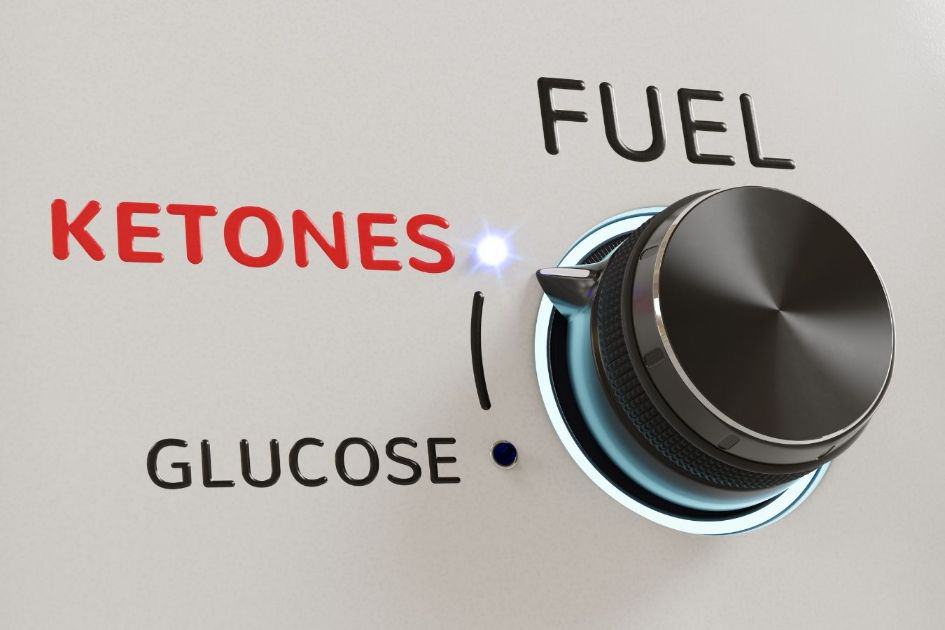
The ketogenic diet can help some people with diabetes. But, it’s important to know the risks. One big worry is diabetic ketoacidosis (DKA), a serious condition from high ketone levels10. People on this diet should check their blood sugar and ketones often. They should watch for signs like dry mouth, lots of pee, feeling sick, and a sweet smell from their breath11.
Also, eating very few carbs can lead to low blood sugar, especially if you’re on certain meds or insulin10. Working closely with a doctor is key to safely try this diet. They can help adjust your meds if needed11.
It’s important to eat healthy fats like those in eggs, fish, nuts, and olive oil, not just lots of saturated fats11. There’s not much research on how well the keto diet works for type 1 diabetes. We need more studies to understand its long-term effects10.
The keto diet might help manage diabetes, but be careful and get a doctor’s advice. Keep an eye on your health, adjust your meds as needed, and eat heart-healthy fats. These steps are key for those with diabetes thinking about the keto lifestyle4.
Monitoring and Adjustments on the Ketogenic Diet
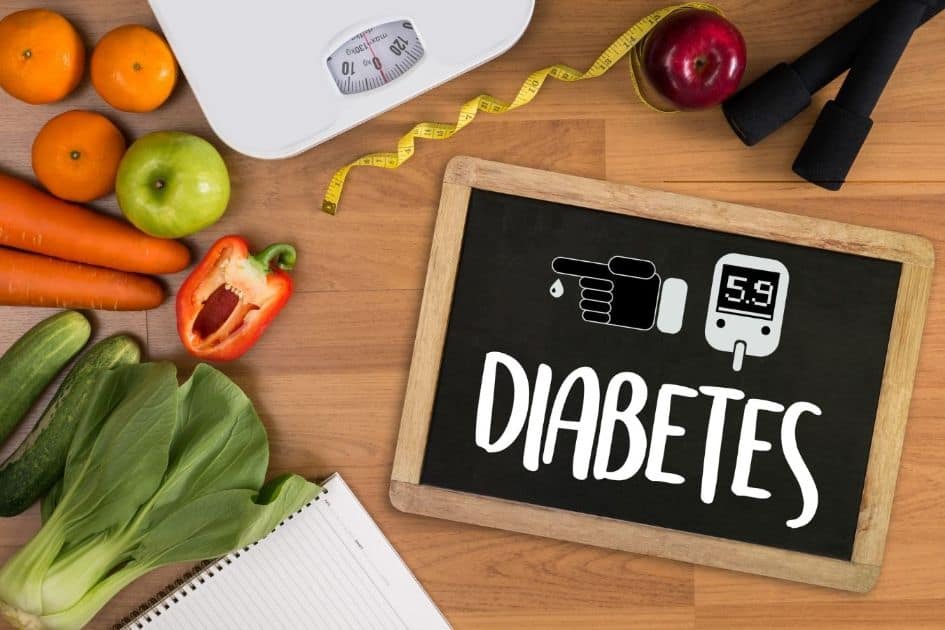
Starting the ketogenic diet for diabetes needs careful watching and changes if needed12. People on this diet should check their blood glucose and ketone levels often. They can use glucometers, CGMs, and ketone meters for this. Urine strips can also show if ketones are there12.
It’s smart to start the ketogenic diet with a doctor’s help12. They can watch how you’re doing and adjust your meds or insulin as needed12. Regular check-ins are key to see how the diet is working, watch for side effects, and make changes if needed12. The American Diabetes Association says to test for ketones if your blood glucose is over 240 mg/dL12.
Working with doctors is very important when you’re on the ketogenic diet12. Keeping an eye on your blood sugar with CGM and self-checks is key for managing diabetes on this diet12. Always talk to doctors before changing your diabetes meds or insulin when starting a ketogenic diet12.
Studies show the ketogenic diet can help control blood sugar and lower insulin resistance in people with obesity and type 2 diabetes13. Trials have found it helps regulate blood sugar in those with high levels. This could be good news for people with type 2 diabetes13.
Switching to fat for energy in ketosis might also lower inflammation in the body. This could help with conditions linked to inflammation13. Research points to a big drop in A1C levels and better fasting blood glucose for those with type 2 diabetes on a ketogenic diet13.
“Collaboration with healthcare professionals is crucial when implementing the ketogenic diet for diabetes management. Regular monitoring and adjustments are key to ensuring safety and efficacy.”
Research and Alternative Diets
The ketogenic diet helps some people with diabetes. But, it’s not the only diet that works well. Studies look into the benefits of diets like the Mediterranean diet and plant-based diets for managing diabetes14.
A 2017 study showed that eating a plant-based diet can improve blood sugar control and A1c levels. It also helps with cardiovascular disease risk factors and gut bacteria that help with insulin sensitivity. Plus, it lowers inflammatory markers like C-reactive protein in people with diabetes14. Dietitian Melissa Matteo says the best diet for diabetes management is one that fits the person’s health needs and lifestyle14.
Plant-Based Diets for Diabetes Management
The ketogenic diet works for some, but not everyone. Other diets like the Mediterranean or plant-based diets can also help manage diabetes14. These diets can improve glycemic control, weight loss, insulin requirements, and cardiovascular disease risk factors14.
A plant-based diet focuses on whole, fiber-rich foods such as vegetables, fruits, beans, and whole grains. This can help control blood sugar levels by slowing down how carbs are absorbed15. Plant-based diets also improve gut health and reduce inflammation, which are key for managing diabetes15.
When picking the best diet for diabetes, it’s smart to work with a healthcare provider, like a dietitian. They can help create a diet plan that fits your needs and likes14. Trying different diets can help you find the one that works best for you and helps you manage your diabetes well141516.
Ketogenic diet and diabetes: Managing Blood Sugar Levels Naturally
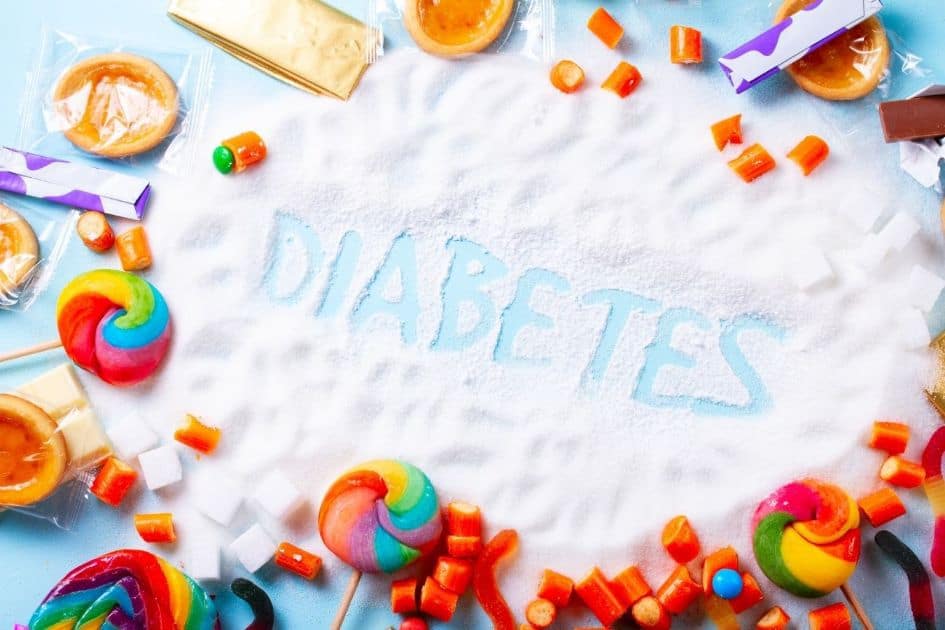
The ketogenic diet is a good way to manage diabetes by controlling blood sugar and improving insulin sensitivity5. It cuts down on carbs and uses fat for energy. This can help control blood sugar, reduce diabetes meds, and aid in weight loss17.
But, the diet has risks like diabetic ketoacidosis (DKA), which is serious5. Type 1 diabetes patients face a higher risk of DKA than others5. DKA is more common in new type 1 diabetes cases, especially in kids5. Missing insulin doses, being sick, having surgery, being pregnant, or getting your period can increase ketone levels5.
Symptoms of ketones include bad breath, high blood sugar, and feeling very thirsty and tired5. You might also pee a lot, have stomach pain, breathe fast, feel confused, pass out, or feel sick5. To check ketones, you can use blood or urine tests5. There are also special monitors for checking ketones in your blood5.
Other diets like the Mediterranean or plant-based diets can also help manage diabetes5. Always talk to a healthcare professional before starting any new diet, especially if you have diabetes.
The keto diet can lead to weight loss by making ketones during fat breakdown5. But, it’s not clear if it’s safe and works well for diabetes5. If you have diabetes, talk to a healthcare professional before trying the keto diet5.
A low-carb diet means eating less than 130g of carbs a day17. Studies show it can help people with type 2 diabetes manage their weight and blood sugar17. But, it’s not good for kids or people with type 1 diabetes17.
Low-carb diets can help you stay healthy and eat fewer carbs17. They make sure you get enough fibre and protein17. They can also help you lose weight and lower your risk of heart disease17.
High blood sugar is uncomfortable for people18. Signs include peeing a lot, feeling thirsty, and getting very tired18. If you’re taking diabetes meds and feel like your blood sugar is too low, check it first18.
Insulin shots can help lower blood sugar18. Walking can also help18. Drinking water helps get rid of sugar and rehydrate you18. Thinking about your sugar intake can also help lower your blood sugar with a low carb diet18.
Conclusion
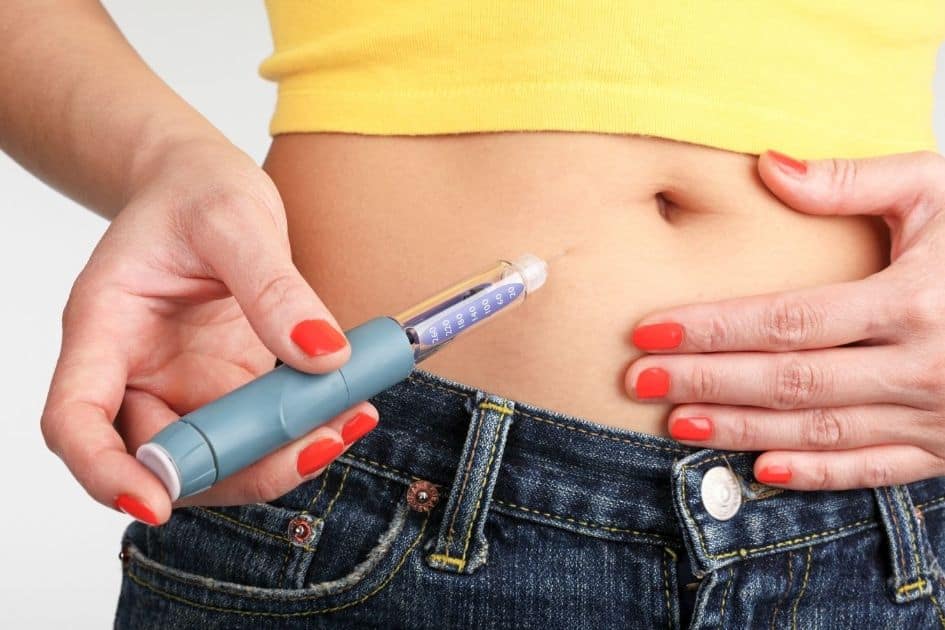
The journey into ketogenic diets and diabetes has shown us a lot. These diets can help control blood sugar and make insulin work better. But, finding the right diet is very personal19.
Ketogenic diets are high in fat, moderate in protein, and low in carbs19. They are defined as having 20 to 50 g of carbs in a 2,000 calorie diet19.
Studies show these diets help with type 1 and type 2 diabetes192021. But, it’s important to talk to doctors to avoid risks and adjust medications as needed19. Other diets like the Mediterranean or plant-based might also work well for diabetes2021.
I will keep an open mind and work with my healthcare team to find the best diet for me. The goal is to use diets like the ketogenic to improve my health and manage diabetes192021.
Learn more about ketogenic diet and diabetes management
Source Links
- https://www.healthline.com/health/type-2-diabetes-ketogenic-diet
- https://health.clevelandclinic.org/is-the-ketogenic-diet-safe-for-people-with-diabetes
- https://www.healthline.com/nutrition/ketogenic-diet-101
- https://www.healthcentral.com/condition/diabetes/diabetes-ketogenic-diet
- https://www.diabetes.org.uk/guide-to-diabetes/managing-your-diabetes/ketones-and-diabetes
- https://diatribe.org/diet-and-nutrition/keto-diet-healthy-diabetes
- https://www.ncbi.nlm.nih.gov/pmc/articles/PMC9437985/
- https://www.healthline.com/nutrition/mediterranean-diet-vs-keto
- https://www.ncbi.nlm.nih.gov/pmc/articles/PMC8002540/
- https://www.verywellhealth.com/keto-diet-diabetes-7969320
- https://consultqd.clevelandclinic.org/ketogenic-diets-in-the-management-of-type-1-diabetes-safe-or-safety-concern
- https://addysdiabeteshealthstore.com/diabetes-and-the-ketogenic-diet-exploring-the-potential-benefits-risks-and-considerations-for-diabetes-management/
- https://discover.texasrealfood.com/keto-clarity-hub/keto-diet-and-insulin-resistance
- https://www.healthline.com/nutrition/low-carb-diet-for-diabetes
- https://www.ruled.me/lower-blood-sugar-naturally/
- https://www.medicalnewstoday.com/articles/323529
As a veteran fitness technology innovator and the founder of GearUpToFit.com, Alex Papaioannou stands at the intersection of health science and artificial intelligence. With over a decade of specialized experience in digital wellness solutions, he’s transforming how people approach their fitness journey through data-driven methodologies.